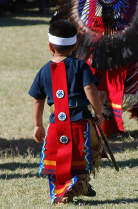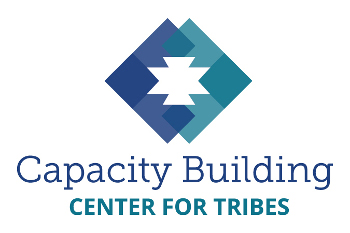4. Know our rights in ICWA cases. Be informed about the new ICWA regulations and how they can help us.
Because of the government to government relationships between tribal, state, and federal governments, tribal leaders can play a vital role in ensuring that the rights contained in ICWA are not infringed on by state and federal workers.
Brief Overview of Rights of the Tribe in an ICWA Case
The Indian Child Welfare Act secures for tribes the following rights:
- to hear and determine child custody proceedings in a manner established by tribal code or custom or administrative action
- to exercise exclusive jurisdiction over child custody proceedings involving Indian children resident or domiciled on the reservation (exceptions exist in Public Law 280 states)
- to exercise exclusive jurisdiction over children who are wards of the tribal court, regardless of whether the children are located on or off of an Indian reservation or within or outside of a Public Law 280 state
- to petition a state court to transfer jurisdiction of a voluntary or involuntary foster care placement or termination of parental rights proceeding to the tribe’s court
- to decline to exercise jurisdiction over a state child custody proceeding where a parent or an Indian custodian has requested the state court to transfer jurisdiction to the tribe
- to intervene in a state court voluntary or involuntary foster care placement or termination of parental rights proceeding
- to receive notice from the state court of an involuntary foster care placement or termination of parental rights proceeding and due process may require notice of voluntary proceedings
- to examine all documents filed with the court which may affect involuntary foster care placement or termination of parental rights, if the tribe is a party to the proceedings

- to petition a court of competent jurisdiction under 1914 to invalidate a state court-ordered foster care placement or termination of parental rights, regardless of whether the underlying proceeding was voluntary or involuntary, on the grounds that such action violates any provision of 1911, 1912, or 1913 of the Act, in an ICWA proceeding
- to alter the order of preference for the placement of children in foster or adoptive homes. 25 U.S.C. 1915(c). State courts and agencies are then required to follow the tribe’s order of preference
- to define who is an extended family member for purposes of the foster care and adoptive placement preferences
- to petition the Secretary of the Interior to reassume whatever jurisdiction over child custody proceedings a state may have acquired pursuant to Public Law 280
- to enter into agreements with states governing the care and custody of Indian children and the general or case-by-case exercise of jurisdiction over child custody proceedings
- to request and receive from the Secretary of the Interior any information that would assist the tribe in determining whether to grant tribal membership to an Indian child or in determining any rights or benefits associated with that membership
Tribe’s rights taken from A Practical Guide to the Indian Child Welfare Act by the Native American Rights Fund. For a more in-depth description as well as reference to legal citations, please visit NARF online.
New ICWA Regulations
The new ICWA Regulations went into effect on December 12, 2016. The new regulations provide stronger protection for Indian children when they are involved in juvenile dependency cases in state courts. The new regulations also provide stronger protections for tribes in those cases. Tribal Leaders must know what protections the new regulations provide and to use those protections when in court.
- Tribal leaders need to learn about the protections provided by the new regulations.
- Ensure that all staff who work with Indian Child Welfare cases know the new regulations and can effectively use them in court.
The new ICWA Regulations can be found in their entirety online.
"Nothing is so strong as gentleness, nothing so gentle as real strength."
